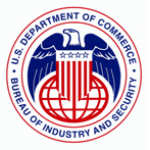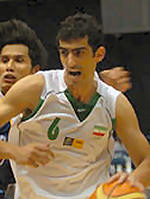
ABOVE: Professor Reece Roth
Opening statements were made yesterday in the criminal prosecution of Professor J. Reece Roth, a retired University of Tennessee professor accused, inter alia, of violating the Arms Export Control Act. Specifically Roth is accused of violating the law by permitting a Chinese graduate student to work on a project involving the application of plasma technology to military unmanned aerial vehicles, commonly known as drones.
According to a report by the Knoxville News Sentinel on its website, the prosecution argued yesterday in its opening statement that an unidentified University of Tennessee official told Roth that it was illegal to have the Chinese graduate student working on the project. Roth’s attorneys do not deny this encounter:
Dundon [Roth’s defense counsel] conceded a UT official, who has not yet been identified in court, told Roth he was violating the law.
“Dr. Roth said, ‘That’s crazy,’ ” Dundon said. “He has not stopped expressing his displeasure and his conviction this research was never subject to (the arms export law).”
Although the identity of this official wasn’t identified in the opening statements, the official was clearly identified in the prosecution’s pre-trial brief filed last week. The official who told Roth that the Chinese graduate student couldn’t work on the project was Robin Witherspoon, the University of Tennessee’s Export Control Officer.
If true, and the defense seems to concede that it is, this puts Roth’s scienter defense into a very strange position. It’s not as if the University’s football coach told Roth that the Chinese student’s participation violated the export laws. In such a case, Roth’s vigorous disagreement with that statement might have some weight. But it was the University’s Export Control Officer, who Roth had to presume knew more about the export laws than he did.
The prosecution clearly feels that the issue of scienter is central to the case. Almost all of its discussion in the pretrial brief of the applicable standards of law discusses the scienter requirement and an apparent conflict among courts as to the meaning of that requirement in export cases. The weak version of scienter only requires that the defendants knows that his or her conduct is unlawful without also requiring any specific knowledge of the laws that are violated or why they are violated. The stronger version requires that the defendant have specific knowledge that the item is on the United States Munitions List or that a license is required.
None of these cases, however, appears to address the scienter issue raised here, namely, whether scienter exists where the defendant has been advised of the export violation but believes, in good faith, that such advice is incorrect.

 Posted by
Posted by  Category:
Category: 

 Today the Bureau of Industry and Security (“BIS”) published a
Today the Bureau of Industry and Security (“BIS”) published a  Who knew that they had giants in Iran? More specifically, who knew that Iran had a 7’2″ basketball player named Hamed Ehadadi. The NBA did, that’s who. And faster than you can say “Yao Ming,” several NBA teams were doing what NBA teams do to lay claim to a guy who can touch the hoop without even jumping.
Who knew that they had giants in Iran? More specifically, who knew that Iran had a 7’2″ basketball player named Hamed Ehadadi. The NBA did, that’s who. And faster than you can say “Yao Ming,” several NBA teams were doing what NBA teams do to lay claim to a guy who can touch the hoop without even jumping. On Monday, the Directorate of Defense Trade Controls (“DDTC”) published on its website the
On Monday, the Directorate of Defense Trade Controls (“DDTC”) published on its website the 

